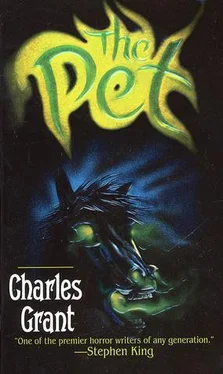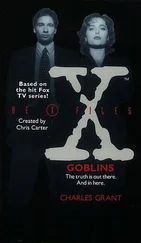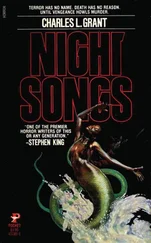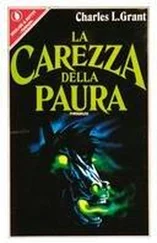For Kathryn. Because.
A cool night in late September, a Wednesday, and clear— the moon pocked with grey shadows, and a scattering of stars too bright to be masked by the lights scattered below; the chilled breath of a faint wind that gusted now and then, carrying echoes of nightsounds born in the trees, pushing dead leaves in the gutters, rolling acorns in the eaves, snapping hands and faces with a grim promise of winter.
A cool night in late September, a Wednesday, and dark.
… and so the boy, who really wasn’t a bad kid but nobody really knew that because of all the things he had done, he looked up in the tree …
And from the Hudson River to a point midway across New Jersey, the land climbed in easy steps toward the Appalachian chain. The forests were gone and so were most of the pastures, replaced by communities that grew in quick time into small towns and small cities, pieces of a jigsaw fit too close together.
One piece was Ashford, a piece not the largest, settled on the first of those low curving plateaus, its drop facing south, low hills at its back. From the air it was indistinguishable from any of its neighbors — just a concentration of lights, glints on the edge of a long ebony razor.
… and he saw the crow sitting on the highest branch in the biggest tree in the world. A big crow. The biggest crow he had ever seen in his life. And the boy knew, he really and truly knew, that the crow was going to be the only friend he had left in the world. So he talked to the crow and he said …
The park was in the exact center of town, five blocks deep and three long blocks wide, surrounded by a four-foot stone wall with a concrete cap worn down in places by the people who sat there to watch the traffic go by. At the north end was a small playing field with a portable bandstand erected now behind home plate, illuminated by a half-dozen spotlights aimed at it from the sides; and the folding chairs, the lawn chairs, the tartan blankets and light autumn jackets covered the infield, protecting the large audience from the dust of the basepaths and the spiked dying grass slowly fading to brown.
A student-painted banner fluttered and billowed over the handstand’s domed peak, unreadable now that twilight had gone, but everyone knew it proclaimed with some flair the approach of Ashford Day in just over a month. The concert was a free preview of the events scheduled for the week-long celebration — a century-and-a-half and still going strong.
The high school band members sat on their chairs, wore their red uniforms with the black and gold piping, and played as if they were auditioning to lead the Rose Bowl parade. They slipped through “Bolero” as if they knew what it meant, marched through Sousa as if they’d met him in person, and they put fireworks and rockets, Catherine wheels and Roman candles exploding and spinning into the audience’s imagination, into the dark autumn sky, when they bellowed and strutted through the “1812 Overture.”
At the rim of the field, back in the bushes where the lights didn’t reach, there were a few giggles, a few slaps, more than a few cans of beer popping open.
… do you think it’ll be all right?
The parents, all the relatives, the school board, and the mayor applauded as if they’d never heard anything quite so grand in their lives.
The bandmaster beamed, and the band took a bow. There were no encores planned, but the applause continued just the same.
… and the crow said, it’ll be just fine as long as you know who your friends really are.
In the middle of the park was an oval pond twenty feet wide, with a concrete apron that slanted down toward the water. It wasn’t very deep; a two-year-old child could wade safely across it, but it reflected enough of the sun, enough of the sky, more than enough of the surrounding foliage to make it seem as if the depths of an ocean were captured below the surface. Around it were redwood benches bolted to the apron’s outer rim. Above them were globes of pale white atop six bronze pillars gone green with age and weather. Their light was soft, falling in soft cowls over the quiet cold water, over the benches, over the eleven silent children who were sitting on them now. They didn’t listen to the music, though it was audible through the trees; they ignored applause that sounded like gunshots in the distance; instead, they listened to the young man in pressed black denim who crouched at the apron’s lip, back to the pond, hands clasped between his knees.
His voice was low, rasping, his eyes narrowed as he sought to draw the children deeper into the story.
“And so the boy said, how do I know who my real friends are? Everyone hates me, they think I’m some kind of terrible monster. And the crow, he laughed like a crazy man and said, you’ll know them when you see them. The boy was a little afraid. Am I a monster, he asked after a while, and the crow didn’t answer. Are you one of my friends, the little boy asked. Of course I am, said the crow. In fact, I’m your best friend in the whole wide world.”
The children stirred as the applause faded, and they could hear the first of the grown-ups drifting down the central path. The young man frowned briefly. He thought he had planned the story better, to end just as the band did, but he had gotten too carried away, elaborating and posturing to get the kids laughing so they wouldn’t be bored. Now he had lost them. He could see it in their eyes, in the shifting on the benches, in the way their heads turned slightly, too polite to ignore him outright though their gazes were drawn to the blacktopped walk that came out of the dark on its way to the south exit.
“Crows don’t talk,” one ski-capped boy suddenly declared with a know-it-all smile as he slipped off his seat.
“Sure they do,” a girl in a puffy jacket argued.
“Oh, yeah? You ever hear one, smarty?”
“Bet you never even saw one, Cheryl,” another boy said. “I’ll bet you don’t even know what they look like.”
The girl turned, hands outstretched. “Donald, I do so know what one looks like.”
The others were lost now, noisily lining up as if choosing sides for a game. The crow’s supporters were outnumbered, but they made up for it with indignant gestures and shrill protests, while the mocking opposition — mostly boys, mostly the older ones — sneered knowingly and laughed and punched each other’s arms.
“Everyone knows what a crow looks like,” Don said, in such a harshly quiet way that they all turned to look. “And everyone knows what the biggest crow in the world looks like, right?”
A few heads instantly nodded. The rest were unconvinced.
Don smiled as evilly as he could, and stood, and pointed to the nearest tree, directly behind them. Most of them looked with him; the others, sensing a trick and not wanting to give him the satisfaction, resisted.
Until the little girl put a hand to her mouth, and gasped.
“That’s right.” He kept pointing. “See? Right there, just out of the light? Look real hard now. Real hard and you won’t miss it. You can see his feathers kind of all black and shiny. And his beak, right there by that leaf, it’s sort of gold and pointed like a dagger, right?”
The little girl nodded slowly. No one else moved.
“And his eyes! Look at them, they’re red. If you look real hard — but don’t say anything or you’ll scare him away — you can see one just over there. See it? That little bit of red up in the air? It looks like blood, doesn’t it. Like a raindrop of blood hanging up there in the air.”
They stared.
They backed away.
It was quiet in the park now, except for the leaves.
“Aw, you’re fulla crap,” the ski-capped boy said, and walked off in a hurry, just in time to greet his parents strolling down from the concert. He laughed and hugged them tightly, and Don without moving seemed to stand to one side while the children broke apart and the oval filled with voices, with feet, with faces he knew that thanked him for watching the little ones who would have been bored stiff listening to the music, and it was certainly cheaper than hiring a sitter.
Читать дальше












